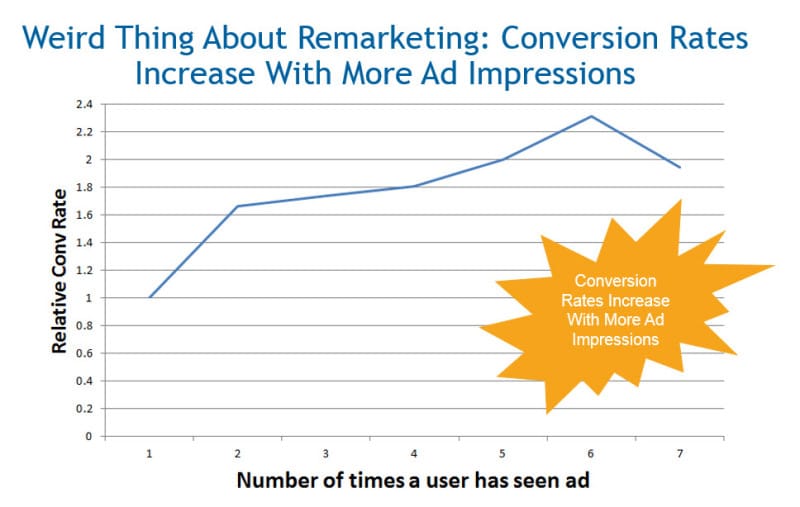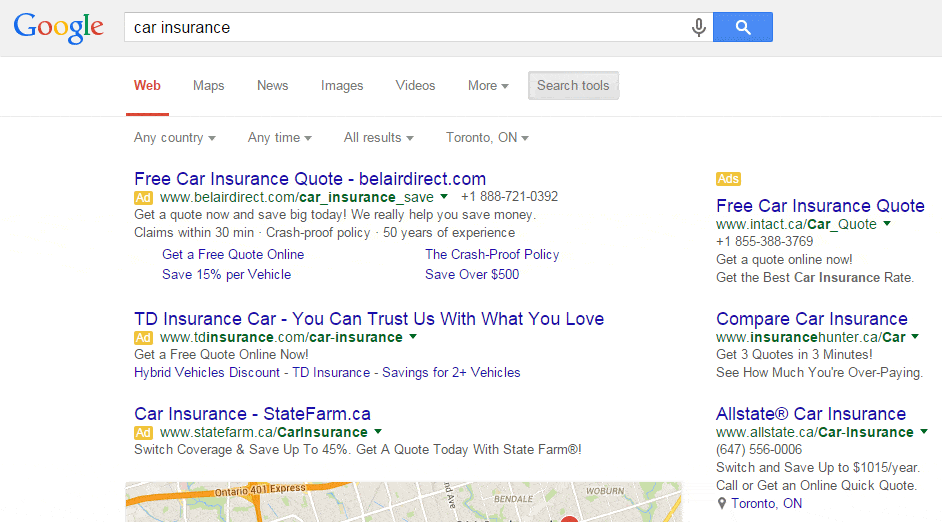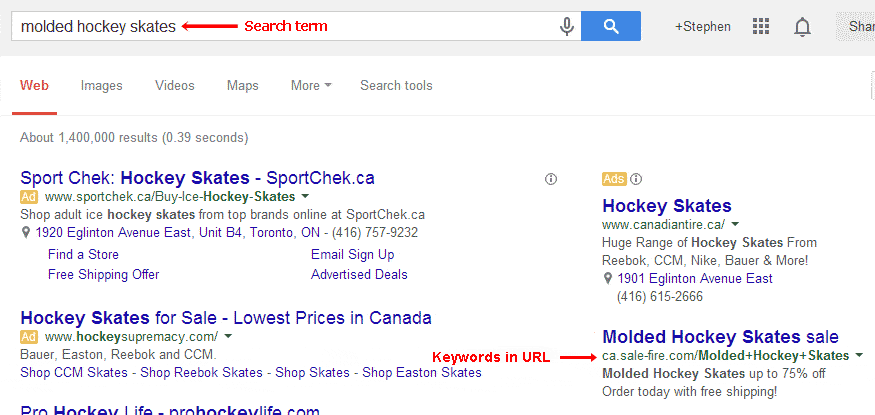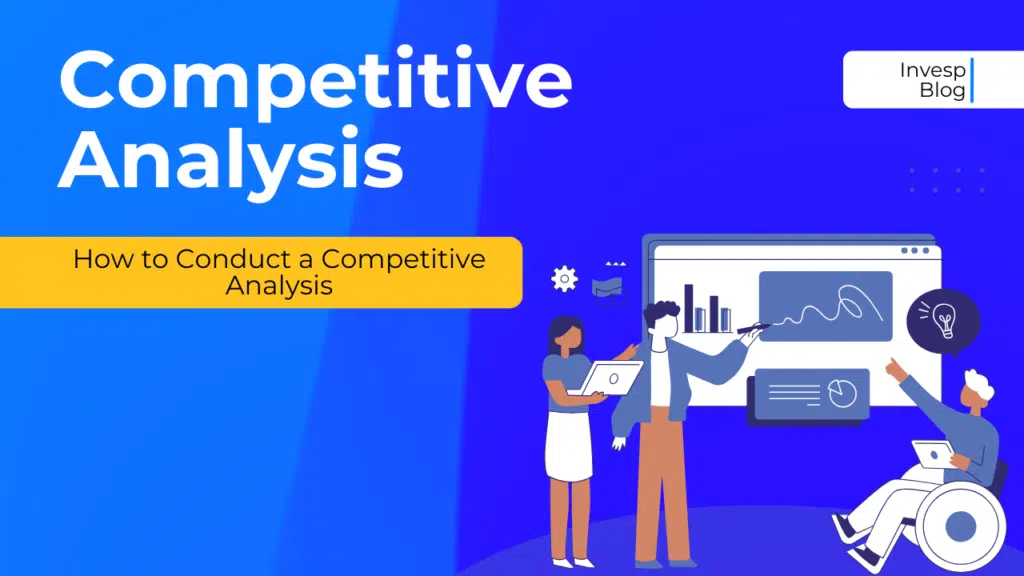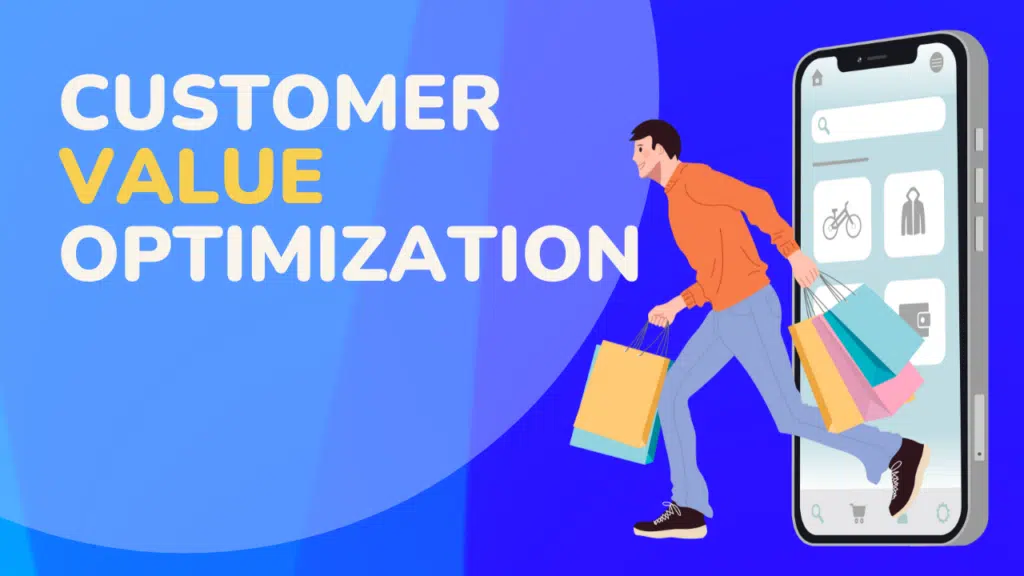It’s generally accepted that at least 90% of all clicks on search results happen on the first page. And of the remaining 10%, it’s generally accepted that an above average portion of those are people who are doing research, looking for “how to” instructions and otherwise not being the target audience for companies marketing their products and services online.
It’s also generally accepted that about one third of those clicks on the first page are made on the pay-per-click (PPC) ads that appear in the top three positions in the left-centre of the page, above the organic results, and in the column on the right side of the page. If there are PPC results for a mobile search, the ads appear in the top three and bottom three positions of each page of results.
So Far We Have Three Truths
- If you are not on the first page of search results, you are virtually invisible to your potential customers.
- Your organic page 1 results are in the running for about 70% of clicks.
- Your PPC ads are vying for a share of the remaining 30% of clicks.
Why PPC is Worth More Than 30%
Digital marketing gurus have traditionally sided with organic SEO as offering the best value for your digital marketing buck. PPC has its place, they say, but SEO’s tactics, including optimized content and link building, have long-term benefits that continue to pay dividends long after you stop your organic search engine marketing. Conversely, once you’ve spent your PPC dollars, they’re gone and there’s no more benefit.
However, between Google’s Penguin and Panda algorithm changes of the past few years, the SEO game has changed. There’s an increased risk of Google penalties that could negate your organic SEO efforts. Major sites, including Expedia, BMW and even Google Chrome have all been penalized under the new algorithms. If it can happen to them, it can happen to anyone.
The increased competition, difficulty and effort needed to get solid organic results has also resulted in new forms of link spamming, like cloaked PDF documents, which could result in penalties for an unsuspecting and otherwise reputable website.
Before we get accused of fear mongering, SEO is still an excellent way to get lasting search results, but it is not as clear-cut a winner in the digital marketing game that it was once.
Conversely, the biggest change in PPC over the past few years is the same as it has been since PPC first emerged, its popularity and keyword competition results in ever increasing costs-per-click.
So optimizing your PPC campaign for conversion is more important than it seems.
Conversions Versus Click-Through-Rates
Too many digital marketing companies and SEO specialists point at high click-through rates (CTRs) as proof of their skill in improving your PPC campaign and overall marketing results.
But, as with all your marketing strategies and tactics, you must keep your eye on the goal – your conversion goal.
Making a sale, gathering addresses for your email database, generating a lead; regardless of your conversion goal, it’s also the focus of your PPC campaign.
CTRs are a measure of one part of realizing your goal. They can improve your Adwords Quality Score and reduce your cost-per-click. But they should by no means be used to indicate success in your overall campaign, or any other part of it. How successful is your campaign if you’re reducing your click costs, but still not making a sale? Clicks are nice, but they don’t convert.
The following points are designed to help your PPC campaign boost your conversion optimization game.
1. Remarketing
Remarketing is number one with a bullet. Like the disintermediation between marketing message and point-of-sale, the tactic of remarketing is unique to web marketing.
Think about how much you spend on your PPC campaign. With that, you only get an average 2% – 5% CTR. It’s a lot of money to get prospects to your site. And that’s not to mention your SEO spend and other marketing costs.
You spend all that money to get someone to your site, and then she leaves. What do you do? Let her go after devoting so many resources to getting her there? Give up on someone who showed some interest in your offer? Do you only give yourself one shot to convert a customer?
No. An abandoned cart or site visit calls for remarketing. Every visitor to your site is digitally tagged, which lets you remarket to them. Now your PPC campaign is focused on people who have already shown some acceptance of your message.
And it pays off in higher conversions. In a blog post, Hubspot highlights one company’s remarketing experience where they enjoyed a 203% increase in conversions over regular display ads and a 119% increase over regular marketing campaigns.
And this graph shows conversion rates more than doubling based on increased numbers of impression through remarketing.
2. Be the Difference Your Customers Seek
Perhaps the number one piece of advice to improve CTRs is to use keywords in your PPC ad headline and description. The obvious advantage is that customers make a faster connection between what they seek and what you offer if you use their search terms in your ad.
But this truth is so widely accepted, it results in masses of nearly identical PPC ads vying for the searchers’ attention with the same keyword-driven headlines.
As your prospects scan PPC ad headlines to find the one that appeals the most, they are really looking for a difference. If every company offered identical products and services, customers would have little reason to choose one over another. So they are looking for a difference in one of the headlines; a difference that strikes a responsive chord in them.
The image of the “car insurance” search results above shows the following PPC headlines:
– Free Car Insurance Quote
– TD Car Insurance
– Car Insurance – StateFarm.ca
– Free Car Insurance Quote
– Compare Car Insurance
– Allstate Car Insurance
With the possible exception of the “Compare” and “Free” headlines, none of them stand out or express any real difference. Even the “Free” headline is repeated word-for-word in two ads.
If one of the headlines focused instead on a unique selling proposition (USP), it would stand out and grab the searcher’s attention.
Which of the following headlines stands out the most?
– Free Car Insurance Quote
– TD Car Insurance
– Car Insurance – StateFarm.ca
– Peace of Mind Driving
– Compare Car Insurance
– Allstate Car Insurance
OK, that’s a quick headline off the top of my head, but you can see the point. How does this improve conversion rates? By setting your USP early in your customer’s path through your conversion funnel, it makes it easier for her to see it as an advantage as it is reinforced further down the funnel.
But what about the keyword? There are other places to show the keyword of phrase in your ad, including using the keyword more prominently in the ad description, using Adword’s Dynamic Keyword Insertion tool to add the keyword to your display URL and creating unique landing pages for your PPC ads (see point 3)
3. Do Your PPC Campaign Conversion Optimization Last – We’ve written recently about why it’s important to make conversion optimization of your PPC campaign one of the last steps in your overall optimization program. In a nutshell, if your conversion goal is the focus of your digital marketing, it makes sense to start with the conversion goal and work your way back up the funnel, optimizing each step as you go. PPC ads are at the top of your online funnel.
When you do, you will naturally have well-optimized landing pages, and SEO and PPC links, including display URLs or actual landing page URLs, that are fine-tuned to deliver traffic that is more qualified to convert.
On average, digital marketers spend 95% of their budgets on attracting visitors to their site and 5% on converting them. The question is, with average conversion rates around 2.5%, how’s that working for you? CTRs shouldn’t be the only benchmark by which we measure the success of PPC campaigns. Conversions are the thing.
Sources:
http://blog.hubspot.com/marketing/improve-conversion-rate-optimization-remarketing
http://www.searchenginejournal.com/20-ways-increase-conversion-rate-optimization-ppc-advertising/97917/


